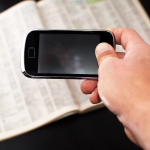Donald Trump predicted the 2016 presidential election would be “Brexit-plus-plus-plus.” In the aftermath of Tuesday’s political earthquake — which reverberated across social media with real-time shock and awe — the comparison from the bellicose-business-mogul-turned-president-elect may be mild.
Shortly after the first polls closed on Election Night there were few surprises as a swirl of final polling projections seemed to cement an imminent victory for Hillary Clinton. Instagram, Twitter and Facebook were saturated by images of New York City’s Javits Convention Center — especially it’s glass ceiling — foretelling a victory party to celebrate the election of the first woman U.S. president.
It was baked in the cake. Clinton had a comfortable four-point lead and even some momentum after FBI Director James Comey had cleared her, again, of criminal wrongdoing in the private email server controversy. To nobody’s surprise early, Florida, North Carolina, New Hampshire, even Virginia, were too close to call.
Then the tremors came. Twitter started to light and buzz like a sparkler with exit polling anecdotes suggesting unthinkable cracks in the Democrat’s vaunted “blue wall.” States certain to fall into Clinton’s column showed Trump leads. Florida fell, then North Carolina. Suddenly, Clinton trailed in Michigan, Wisconsin and Pennsylvania, three rust-belt bastions of blue that weren’t even considered battleground states.
Steady streams of tweets suggested the rumored hidden Trump vote seemed real. Politicos of all stripes posted evidence that Clinton’s women’s vote margin was lower-than-expected while the rural vote totals for Trump eclipsed expectations. References to an “American Brexit” rocked Twitter.
By the 11 p.m. news block, even as neither candidate seemed certain to reach 270 electoral votes, the self-flagellation started. The polling industry should be burned and rebuilt, Twitter barked. The political class, stuck in their New York and Washington bubbles, had underestimated the angst in Middle America. The media, despite around-the-clock coverage of the race for 18 months, had failed.
Famed pollsters like the New York Times’ Nate Cohn and 538′s Nate Silver breathlessly boosted Trump’s election chances in tweets — from 35 percent to 50 percent to 74 percent. Then it surpassed 90 and even the brief speculation of a 269-269 electoral tie was swept aside.
Ohio was called for Trump, then Wisconsin. And it was over. By the early morning hours of Wednesday, the political world’s collective shock turned into poignant moments from parents, who posted heartfelt messages to their young children on Instagram and Facebook. Many came from mothers, writing to their daughters, trying to contextualize Clinton’s loss as reassurance that they were nonetheless empowered and valued, respected and loved.
A similar theme went viral after CNN’s Van Jones described Trump’s upset win as a “whitelash,” noting parents would have difficulty explaining the result to their kids. Finally, Twitter users on both sides found a tool to come to terms with 2016′s exhausting election, using the hashtag #TheMorningAfter.
Not surprisingly, even that polarized as progressives included the hashtag as a call to action prompting conservatives to hijack it as a nail in the coffin. And 2020 is not even a full, four years away.







